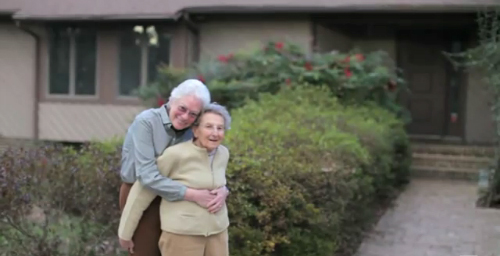
North Carolinians will go to the polls tomorrow to vote on Amendment One, a proposed constitutional amendment that would ban civil unions and domestic partnerships by making marriage between a man and a woman the only “domestic legal union that shall be valid or recognized” in the state.
Placed on the ballot by the Republican-controlled state legislature in September without much notice or any public testimony, Amendment One is one of the most extreme anti-LGBT measures ever proposed on a statewide ballot. While supporters claim the amendment would simply codify North Carolina’s existing ban on same-sex marriage, the truth is the amendment goes beyond that by risking harm to all unmarried couples -- gay and straight -- across the state. According to a by University of North Carolina law professors, Amendment One could take away legal protections from more than 200,000 families by eliminating domestic partner insurance benefits offered by several state municipalities, jeopardizing health care and child custody for unmarried couples and their children, and -- depending on how state courts interpret the untested phrase “domestic legal union” -- even invalidate domestic violence protections for unmarried women or prevent the state from giving committed couples the ability to make medical and financial decisions for one another.
Please note that by playing this clip YouTube and Google will place a long-term cookie on your computer. Please see on their website and on theirs to learn more. To view the ACLU's privacy statement, click here.
While many North Carolinians still remain confused about the amendment’s potential harms, support for the measure has gradually declined as that voters are less likely to support Amendment One when they understand its full impact. A majority of North Carolinians support civil unions for same-sex couples, which Amendment One would ban.
Perhaps the most encouraging development in the anti-amendment campaign has been the broad and bipartisan chorus of voices that have publicly opposed the discriminatory and mean-spirited measure. In addition to high-profile Democrats including , , , and , many prominent local conservatives, such as , , and have also come out against Amendment One because, in the words of , president of the conservative John Locke Foundation, amending North Carolina’s constitution to take away rights rather than preserve them is “unwise and unfair.”
Even legislative sponsors of the amendment have voiced concerns. (R), who helped shepherd Amendment One’s passage through the legislature, said he has philosophical reservations about the measure because “we’re the party of limited government,” and predicted that if Amendment One does pass, it will be repealed within 20 years because of the rising “generational” support for LGBT rights in North Carolina and nationally. In reaction to public outcry from constituents, another amendment sponsor, (D) changed his position entirely, saying, “I will definitely vote against it because I think it goes too far.”
The state’s , business executives from and , , advocates for children and domestic violence victims, , and have also forcefully spoken out against the amendment.
As a founding member of the anti-amendment , the has been at the forefront of the campaign, hiring a full-time organizer, producing campaign literature, publishing , speaking out in and community meetings across the state, and even partnering with local LGBT rights organization to develop the , a website to share stories of loving and committed North Carolina families with gay and lesbian members, such as the above video featuring Lennie and Pearl of High Point, North Carolina, who have been together for 45 years.
Win or lose tomorrow, advocates for LGBT equality in the Tar Heel state are already confident that the large and still-growing coalition of groups and individuals who came together against Amendment One have created an unprecedented infrastructure with which we can wage future battles to defend and expand civil liberties not just for LGBT North Carolinians, but all people in our state.

